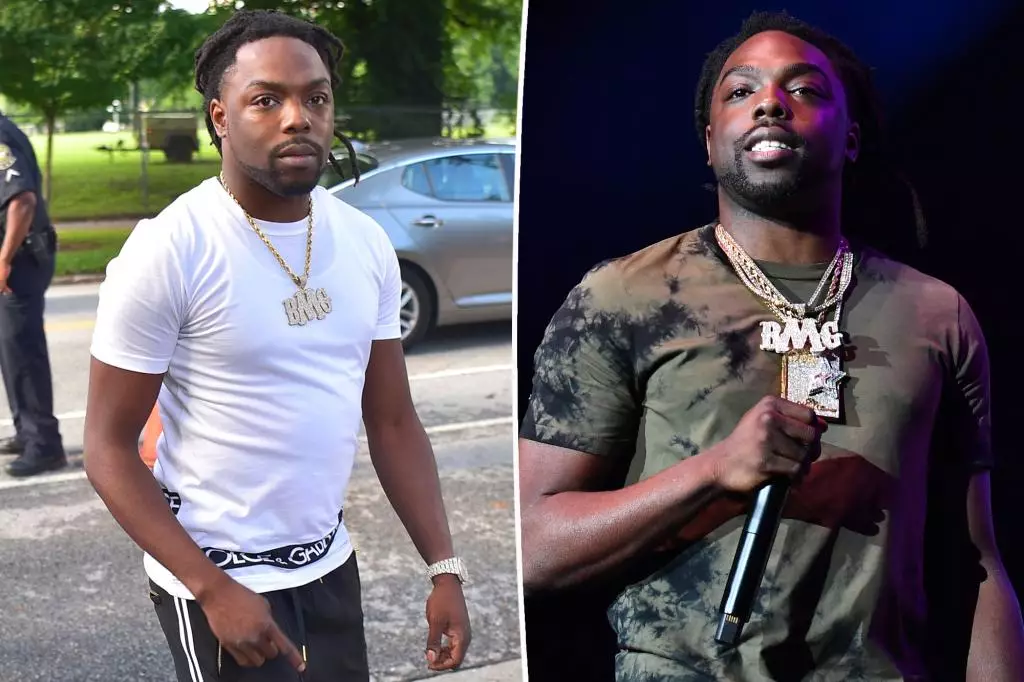The music world is no stranger to the harsh realities of life and death, but the untimely demise of Atlanta-based rapper Young Scooter resonates painfully within the hip-hop community. Born Kenneth Edward Bailey, Scooter tragically passed on his 39th birthday, a day that should have been a celebration of his life and artistry. His death, resulting from a severe leg injury while evading police, underscores a deeper narrative about the lives of artists navigating a perilous landscape filled with both promise and peril.
A Life Cut Short
As news of Young Scooter’s death spreads, one cannot help but reflect on the events leading up to that fateful moment. Initial reports indicate he sustained a fatal leg injury after attempting to escape from law enforcement during an incident that involved reports of gunfire. Lt. Andrew Smith of the Atlanta Police Department provided details that paint a chaotic scene: a dispute escalated into a dangerous confrontation, one that found Scooter allegedly leaping over fences in his desperate flight. While law enforcement maintains that Scooter’s death was not a direct result of their actions, the question lingers—could this tragic outcome have been avoided altogether if different circumstances had played out?
The Complex Duality of Fame and Risk
Scooter’s journey to success was marked by collaborations with prominent figures such as Future and Gucci Mane, highlighting a dynamic talent poised to make significant waves in the industry. However, his affiliation with the street culture often associated with hip-hop brings to light the duality many artists face: the lure of fame against the backdrop of their pasts, which occasionally includes brushes with law enforcement and violence. This confrontation, rooted in a culture of survival and self-preservation, becomes an all-too-frequent narrative in the lives of many rappers who rise from the harsh depths of their environments.
The Impact on the Community
The loss of Young Scooter is more than just a personal tragedy; it’s a poignant reminder to millions of fans and aspiring artists about the volatile nature of the entertainment industry. His music, rich with the struggles and resilience of urban life, resonated with many who found solace and inspiration in his lyrics. Losing a voice that articulated these experiences raises critical questions about the systemic issues that continue to plague communities and the art that emerges from them. His death leaves a vacuum not only within his fanbase but also in the collective narrative of hip-hop, which often grapples with broader themes of survival, trauma, and the quest for redemption.
A Legacy Amidst Chaos
As the hip-hop community mourns, it is essential to consider how Young Scooter’s life and career will be remembered. His legacy intertwines the themes of triumph and tragedy, reflective of a generation of artists who navigate a fragile existence. The collaborative nature of his music ensured that his contributions would not be easily forgotten, yet the circumstances of his death prompt a critical analysis of the very environment that cultivated his talent. In a genre that serves both as an escape and a mirror to reality, Scooter’s story highlights pressing issues of safety, mental health, and the importance of community support for artists battling their demons.


Leave a Reply